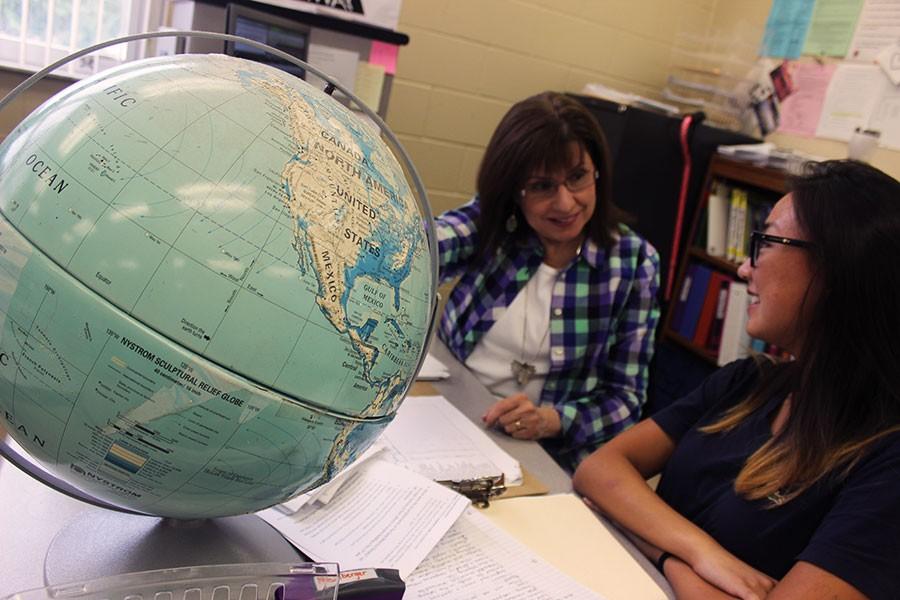EUROCENTRIC EDUCATION BIASES STUDENTS’ PERSPECTIVES
In World History classes today, many primarily focus on European achievements and not enough credit is given to other nations.
January 25, 2016
The names Galileo, Shakespeare, and Van Gogh are familiar to almost every student at Seminole High School. However, few students recognize the names of Aryabhatta, Achebe, or Tagire— all illustrious international men or women from history. This is due to a trend in the education system called Eurocentrism, which tends to focus on Caucasian achievements more than those of the rest of the world. This is a problem because Eurocentrism ultimately teaches students that only certain cultures are worth caring about, potentially resulting in narrow-minded adults.
The impact of Eurocentrism in one’s understanding of the world can literally be viewed the second one looks at a map: Europe is in the center of the globe, with Asia and the Americas pushed to the sides. This mentality has pervaded a history of minority oppression at the hands of Europeans, resulting in the perceived devaluation of other cultures. It is time to fight this trend with better education.
“We are part of the entire human species, so we shouldn’t just be focusing on a single race,” says freshman Madison Sepiol.
In many of our history classes, European history is the main focus; history begins in the Mediterranean region and other civilizations, (including those of Africa, Asia, and the Americas) are only mentioned in relationship to the European hotspot. In some history books, histories of Asia, the early Americas, Australia and Africa are shunted into separate chapters or omitted altogether, or not even taught at all.
Similarly, the English literature assigned to high school students often focuses on Western authors like Twain and Shakespeare. While these classics have much to offer students, it is important for them to be introduced to the literature of the rest of the world as well.
Such a selective education sends across the misinformed impression that European history alone is worth studying. It is true that many of today’s notions of nationalism, modern state, and politics are very European, but there is much that can be learned from the histories of other cultures.
“Students are only being taught one side of the story,” says freshman Priyanka Chandra.
It is true that it is impossible to study every culture of the world in depth in four years, but it is still important that students get some exposure to the history and values of other countries. Many students who graduate from SHS will be pursuing a career in an increasingly globalized society, so knowledge of the rest of the world is vital.
Many programs in Seminole High School are working to alleviate this problem. One such program is the International Baccalaureate, whose rigorous program is specifically designed to create an “international outlook,” and enable students to compete in an “increasingly globalized world,” according to its official website.
“I found IB attractive because it focuses on more than just the U.S. For example, in English so far we have read literature from three continents, including [the countries of] Russia and Nigeria,” says Sepiol.
Features of the IB program include the History of the Americas and Contemporary History class, as well as a special world literature reading list.
“Through the [IB] program, students meet certain outcomes, like learning to work with each other,” says IB coordinator Carson Stone. “Its population at SHS is diverse, and you can see how people think differently.”
Other programs include the Advanced Placement (AP) program, which offers courses like AP Human Geography and AP World History. These courses are open to all, whether or not the student is in the IB program.
Reflecting on the diversity of the entire world, and even that of Seminole High School, it is crucial that students develop a wider world view. Combating the historic trend of Eurocentrism can only happen if there is a wide awareness and understanding of other cultures and their value.



















